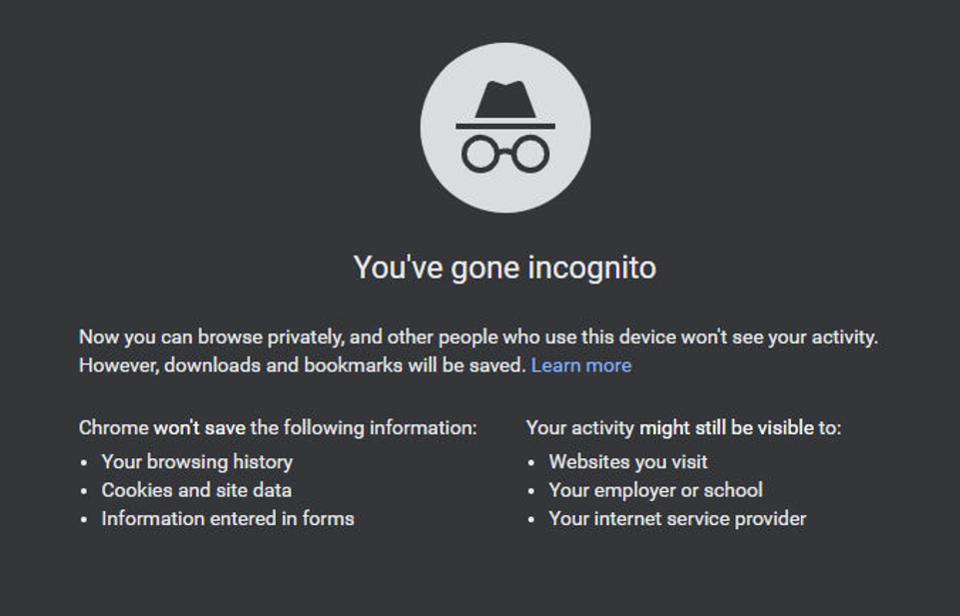Chrome incognito mode is not 'secret', each user can get $ 5,000 compensation
A group of lawyers has filed a lawsuit filed by the representative of the Google Chrome user community, alleging that Google collects illegal information in its private browsing sessions. If successful, Google will have to pay damages of $ 5,000 for each individual who has used incognito mode (Igconito Mode) of Chrome since June 1, 2016.
The complaint was filed in California district court by a partner at the law firm Boies Schiller Flexner. Plaintiffs claim that this lawsuit was caused by Google's "blocking, unauthorized and intentional collection" of confidential information connections without the consent of the individuals involved.
If you open an incognito browsing session in Chrome browser, Google will display a notice that you can "browse privately" and confirm that other people using the device will not be able to see your browsing activity. Although this message says download history and bookmarks will be saved. And the browsing history, cookies, website data and form input will not be saved.
The suit argues that Google "tracks and collects users' browsing history" and other web activities, regardless of the safeguards taken.
A Google spokesperson said the company would strongly defend itself against controversial allegations.
"Incognito mode in Chrome gives you the option to browse the Internet without saving the activity to your browser or device, but as we point out every time you open a new incognito tab, the The site may still collect information about your browsing activity. "
Indeed, the initial message in the incognito window indicates that the user's activity will still be visible to the site administrator and the Internet service provider.

The initial notice in Chrome's incognito windows indicates that the user's activity will still be visible to the site administrator and the Internet service provider.
However, the lawsuit claims that Google "performs stealth tracking" by using tools like Google Analytics, Google Ad Manager, and the Google Sign-In button for websites. Using tracking tools and not explicitly including them in anonymous session messages seems to be the core of the problem.
By continuously collecting and identifying browsing data, Google has been claimed by the plaintiffs to violate both federal and state laws of eavesdropping, giving people the right to sue if contact is private. be collected.
It is estimated that more than 1 million users will be covered if they win the case, and if Google had to pay $ 5,000 each, they would lose $ 5 billion.
 Former Microsoft employee revealed the secret in Task Manager on Windows 10
Former Microsoft employee revealed the secret in Task Manager on Windows 10 A close up of NASA's 'super terrible' spacecraft transport machine
A close up of NASA's 'super terrible' spacecraft transport machine How to Hang a Lamp Without Drilling
How to Hang a Lamp Without Drilling How to Clean Vive Foam
How to Clean Vive Foam How to Measure Pump Impeller Diameter
How to Measure Pump Impeller Diameter How to Adjust an Abrasive Stone on a Bench Grinder
How to Adjust an Abrasive Stone on a Bench Grinder